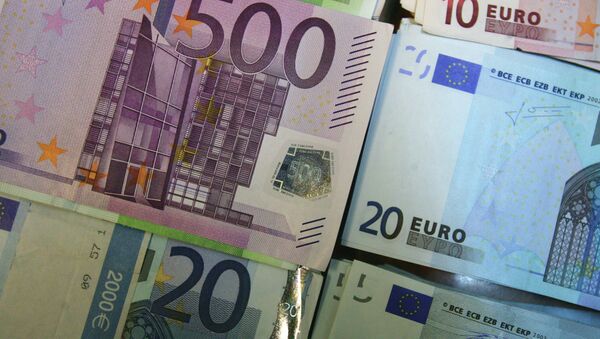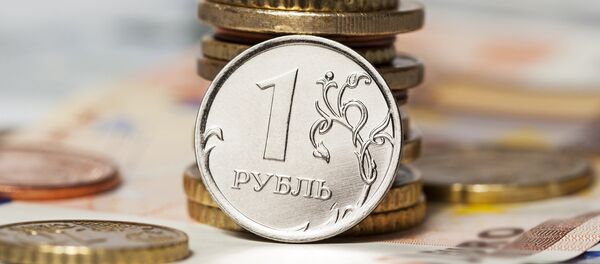MOSCOW, January 5 (Sputnik) — The dollar strengthened versus all major currencies except the Japanese yen, taking the dollar index to its highest in nine years on January 5. The euro was one of the worst performers amid speculation the European Central Bank is preparing for large-scale bond purchases.
The shared currency sunk as much as 1.2 percent against the dollar to $1.1864 – its weakest level since March 2006, before narrowing the decline to $1.1955, a four-and-a-half-year low.
According to Draghi, the bank might soon start buying government bonds like its counterparts in Britain and the US. The purpose of the program would be to inject cash into the banking system and stimulate economy.
The euro also slid as Greece began an election campaign, which, according to Prime Minister Antonis Samaras, will determine the country’s eurozone membership.
"It’s very hard to imagine something that can convince the market that the euro is not a selling opportunity at this juncture," Roberto Mialich, a senior currency strategist at UniCredit SpA in Milan, told Bloomberg. "The market continues to speculate that the ECB will start QE this month. Clearly the election in Greece probably complicates the agenda for Draghi."
"The risk that we don’t fulfill our mandate of price stability is higher than it was six months ago," Draghi was quoted as saying by Bloomberg. "We are in technical preparations to alter the size, speed and composition of our measures at the beginning of 2015, should this become necessary."
After falling to a four-and-a-half year low on Friday, the euro’s drop was intensified on Monday after a Der Spiegel article said Germany was ready for Greece to exit the eurozone, if the Syriza party won the election and abandoned the imposed EU reforms.
However, the German government stressed the country hopes "that Greece will continue to meet its obligations".
Another provocative factor for further decline of the euro could come on Wednesday, when economists expect Eurostat’s "flash" reading for December consumer prices across the Eurozone will give the first negative print since late 2009. Economists forecast a reading of minus 0.1 percent year on year, after a five-year low of 0.3 percent the month before, according to Financial Times.
"If inflation remains low for a long time, people might expect prices to fall even further and postpone their spending. We are not there yet. But we need to tackle this risk," he told Handelsblatt.
The dollar index was set to reach its highest in almost six years as the Federal Reserve moves toward raising interest rates. The Bloomberg Dollar Spot Index (BCOM), which tracks the US currency against 10 major peers, rose for a second day.
The stronger dollar also drove oil prices to multiyear lows with WTI crude dropping 1.9 percent to $51.74 a barrel while Brent crude declined 1.56 percent to $55.54 a barrel.






